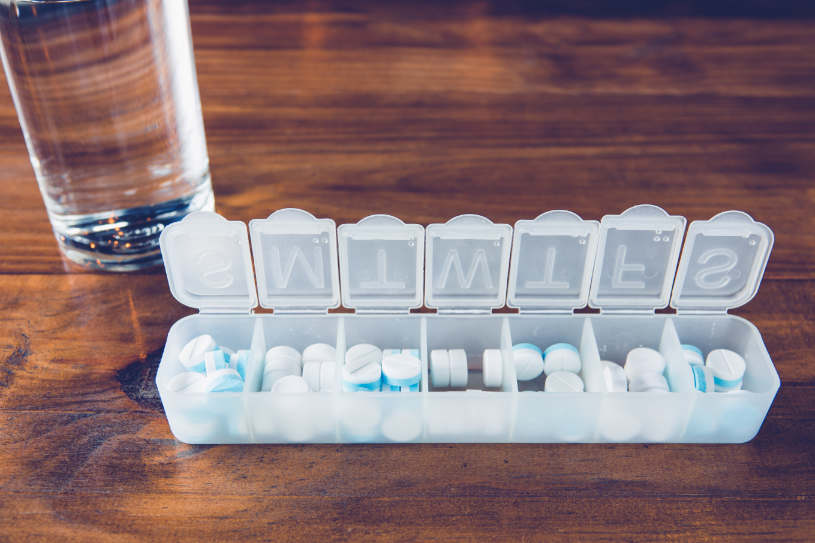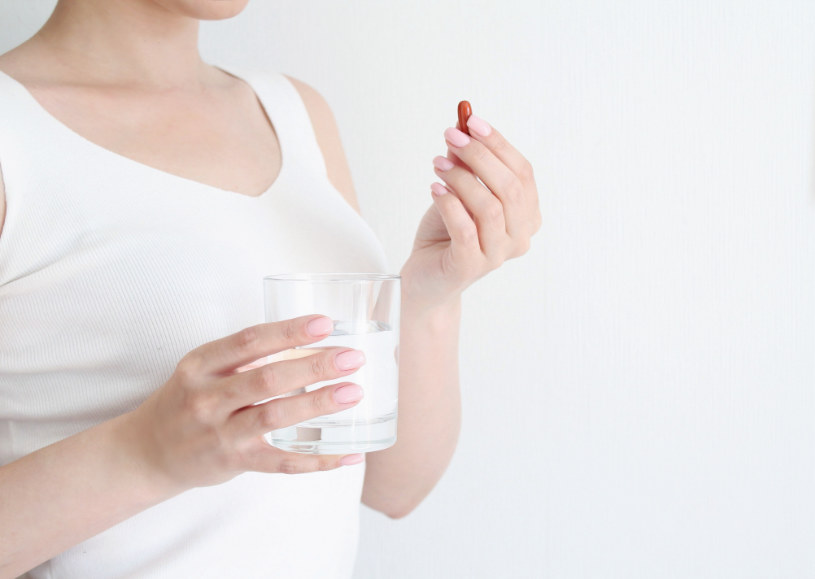Phenobarbital, with the brand names Luminal and Solfoton, is a Barbiturate medication. The primary use of this drug is for managing seizures. Some medical doctors also use it as a sedative and depressant drug. In 2018, around 3.2 million prescriptions of Barbiturates, including Phenobarbital, were issued in the United States.
Table Of Contents:
However, patients using this medication must be cautious and full of care because an overdose can occur following an accidental or intentional intake of the drug at amounts much higher than its therapeutic doses. Being a psychoactive substance, Phenobarb has a strong potential for abuse and dependence, increasing its risk for overdose. Phenobarbital overdose affects the brain and other vital organs causing fatal complications if medical intervention is not provided immediately.
In this article, information about the symptoms, signs, and Phenobarbital overdose treatment, as well as the dangerous Phenobarbital drug interactions such as with alcohol or other drugs will be provided.
Data And Statistics on Barbiturates Overdose Issue in the USA
Take note that a drug overdose may occur intentionally or unintentionally. Aside from taking too much of the drug, there are many reasons why unintentional Phenobarbital overdose may occur such as the following:
- Medication error– This happens during the dispensing of the drug where wrong medication was given to the patients.
- Labeling issues– Patients unknowingly used the wrong medication because the drug may be improperly labeled.
- Repeatedly taking the medication due to forgetfulness– This is more prevalent with the elderly as they are more vulnerable to forgetting their medications.
- Accidental Phenobarb overdose during surgical or medical procedures
Either intentional or unintentional, drug overdose is one of the leading causes of fatality in the United States. In 2003, there were 2,824 patients who were exposed to barbiturates, including Luminal, and 12 of these patients died due to Phenobarb overdose. Because of this, there must be a strict policy in Luminal use or administration.
Can One Overdose On Phenobarbital
Yes, it is possible to overdose on this barbiturate drug, like other drugs of abuse. Luminal substance category is schedule IV of the DEA classification because of its potential for abuse and dependence. Misuse of Luminal causes poor judgment and reduced inhibition, which can lead to the intake of larger doses of the drug.
Luminal is a long-acting barbiturate, staying longer in the system than other barbiturates. This duration contributes to the severity of its toxicity: How long does Luminal stay in your system? It has a mean half-life of 79 hours, and it takes five to six half-lives (approximately 15 days) for it to be eliminated from the system. Therefore, any misuse could further prolong this elimination time, increasing the risk of Phenobarb overdose complications.

Signs and Symptoms of Phenobarbital Overdose
Even if patients are not abusing or misusing this barbiturate drug, it is a must for the signs and symptoms of Phenobarb overdose to be learned and understood. Moreover, these signs and symptoms can vary between individuals and depending on the amount used.
Below Is Information About Phenobarbital Overdose Signs and Symptoms, Affecting the Different Parts of the Body:
- Heart and Blood:
- Low blood pressure
- Fast heart rate
- Irregular heartbeat
- Airways and Lungs:
- Shortness of breath
- Irregular respiration
- Fluid build-up in the lungs
- Bladder:
- Reduced urination
- Skin and Eyes:
- Reduced pupil size (in severe overdose, the pupils may be enlarged)
- Random eye movements
- Blisters
- Central Nervous System:
- Paranoia
- Respiratory arrest
- Low body temperature
- Confusion
- Headaches
- Slurred speech
- Agitation
- Fatigue
- Unsteady gait
- Drowsiness
- Cessation of all electrical activity in the brain
- Coma
In case any of these signs and symptoms of Phenobarb toxicity are seen, it is important to contact emergency care as soon as possible in order to avoid unwanted health events and properly manage the life-threatening effects of the drug.
Risk Factors for Luminal Intoxication
Luminal intoxication happens due to different reasons such as when too much of Luminal has been used. Moreover, this risk of intoxication can be increased, depending on certain factors, including the following information:
- Increasing doses without medical supervision: Intentional increase in the amount of Luminal ingestion may cause intoxication. This may be in an attempt to resolve overwhelming symptoms of anxiety by oneself. Furthermore, intake of Luminal recreational dose increases one’s risk of toxic effects.
- Combining with other psychoactive drugs: These are considered Phenobarbital drug interactions. Using Luminal with alcohol or benzodiazepines may increase the risk of overdose. These substances also depress the brain and respiration, causing additive effects when combined with Luminal. This may occur in the case of Luminal suicide.
- Individual Factors: Health issues such as liver and kidney problems increase the half-life of Luminal, which, in turn, increases its duration of stay in the system. This increases the risk of Phenobarb toxicity and worsens phenobarbital overdose symptoms. According to the doctors from the New Mexico hospital, one main cause of unintentional overdose or Luminal intoxication is the patient has underlying respiratory problems.
So, can Luminal intoxication cause death? Death from Luminal toxicity usually results from respiratory depression, fluid build-up in the lungs, and heart failure. These conditions reduce the amount of oxygen and blood, reaching the tissues. Over some time, this reduction in oxygen supply to the organs, particularly the brain, leads to the death of the patient.
To prevent abuse and overdose, care must be done with the use of this drug. Take the recommended dosage at the recommended times and avoid mixing with medicines that can interact with it.
Phenobarbital And Alcohol
Both Phenobarbital and Alcohol act on GABA receptors. They inhibit the synaptic activities in the brain (suppression of the activities of the central nervous system) which leads to sedation and reduction of seizure activities. However, take note that when Phenobarbital and Alcohol are consumed together, dangers to the health may occur.
According to the Doctors from Kern Medical in California, the major life-threatening cause of this combination is respiratory depression. Other dangers when Phenobarbital and Alcohol are combined are the following:
- Severe drowsiness
- Vertigo
- Loss of coordination
- Agitation and irritability
- Severe headaches
- Depression
- Lethargy
- Confusion
- Loss of consciousness
- Fever and skin rashes
- Swelling of eyes and lips
As much as possible never combine Phenobarbital and Alcohol together as this may lead to coma and death. If a patient is experiencing any of the side effects mentioned above, seek emergency medical care or help as soon as possible in order to avoid unwanted health events.

Phenobarbital Drug Interactions
There are around 1,300 approved Phenobarbital drug interactions. Although this number is considered big, take note that these interactions may be either safe or dangerous. Some drug classifications that are considered dangerous Phenobarbital drug interactions includes the following:
- Benzodiazepines– The severity of the adverse effects of the Benzodiazepines may be increased. Example of Benzodiazepine is Ativan.
- Antihistamines– Benadryl, when taken with Luminal may increase the sedative effects of Luminal.
- Selective Serotonin Reuptake Inhibitors (SSRIs)– SSRIs may cause seizures and when these drugs, such as Prozac, are taken with Luminal, the effectiveness of Luminal can be decreased.
- Opioids and analgesics– When Luminal is taken with Acetaminophen, there will be an increased risk of hepatotoxicity.
On the other hand, there are also some drug classifications that can be safely used with care and caution together with Luminal are the following:
- Anticonvulsants
- Vitamin C
- Corticosteroids
It is safer to consider that all drugs and even foods are possible to interact with Phenobarbital. For this reason, no matter what medication the patients are taking together with this drug, it is strongly advised to consult a medical doctor to get help and information about the proper Luminal dose and frequency.
First Aid Tips for Phenobarbital Overdose
There are times when Phenobarbital overdose happens at home and knowing what to do during these overdose events is vital. Follow these steps to get help for an individual with an overdose or signs of Phenobarb toxicity.
- Confirm that the airway is protected and the individual is breathing. Also, confirm the presence of a pulse.
- Call 911 if the patient is in a coma or experiencing severe difficulty breathing. You can also call the local emergency hotline if 911 is unavailable.
- Call the Poison Control Center at 1-800-222-1222 and follow the instructions provided.
- Provide the call agent with the necessary information including the type and strength of drug taken, the dosage, time of ingestion of the drug, and the age and weight of the affected person. (Have these details readily available before calling). If the phenobarbital generic name is not what’s on the label, identify the brand names.
- Take the person to the emergency room for Phenobarbital overdose treatment.
- Ensure to go along with the medical strip or container to the emergency room.
Everyone is encouraged to study first aid lessons and basic life support. Being knowledgeable of these topics will not just help in avoiding any unwanted events at home but also helpful in all places and all times.
Preventing Phenobarbital Abuse and Overdose
The best way to prevent Luminal abuse and overdose is by strictly following the instructions of a medical doctor. Since healthcare professionals also play a role in preventing this, it is advised for every pharmacy or hospital to make a policy with regard to Luminal dispensing and administration. This policy must be strictly followed in all ways, including during surgeries, as this is one of the possible causes of Phenobarb overdose.
Moreover, Phenobarbital overdose treatment is mainly supportive; it involves treating the prevailing symptoms and preventing complications. No Luminal antidote reverses its effects. Therefore doctors have to manage each sign. If other psychoactive substances are involved in the overdose, the doctor will administer the appropriate antidote or treatment.
As a result of its addictive and abuse potential, Luminal can easily be overdosed. If the recommended dose does not provide adequate relief, consult the doctor as that might be a sign of developing dependence or tolerance to the drug. The early treatment for drug abuse provides the best results. There are many different substance abuse rehabs that offer their services to people willing to start a new clean life and their families.
Hope Without Commitment
Find the best treatment options. Call our free and confidential helpline
Most private insurances accepted
Page Sources
- Kane, S. P. P. (2018). Barbiturate - Drug Usage Statistics, ClinCalc DrugStats Database. ClinCalc. https://clincalc.com/DrugStats/EPC/Barbiturate
- Lewis, C. B., & Adams, N. (2020). Phenobarbital. StatPearls [Internet].
- Overdose Death Rates. (2021, February 25). National Institute on Drug Abuse. https://www.drugabuse.gov/drug-topics/trends-statistics/overdose-death-rates
- Lorazepam: Uses, Interactions, Mechanism of Action | DrugBank Online. (2021). DrugBank. https://go.drugbank.com/drugs/DB00186
- Phenobarbital: Uses, Interactions, Mechanism of Action | DrugBank Online. (2021). DrugBank. https://go.drugbank.com/drugs/DB01174
- Salyer, S. W. (2007). Essential emergency medicine: for the healthcare practitioner. Elsevier Health Sciences.
- Shao, X., Wang, P., Bao, Y., Chen, L., & Zhong, X. B. (2019). Phenobarbital Increased Hepatic Toxicity of Acetaminophen due to Cytochrome P450 Induction in Young and Adult Mice. The FASEB Journal, 33(S1), 506-7.
- Suddock, J. T., & Cain, M. D. (2018). Barbiturate toxicity.

 Authored by
Authored by  Reviewed by
Reviewed by 
